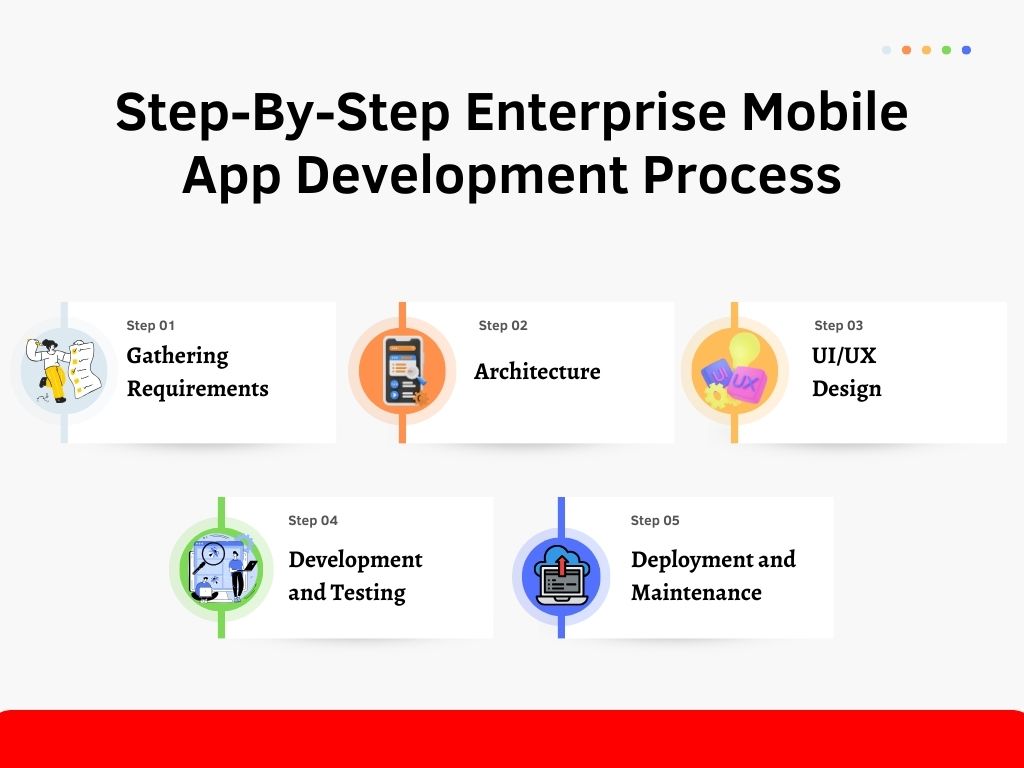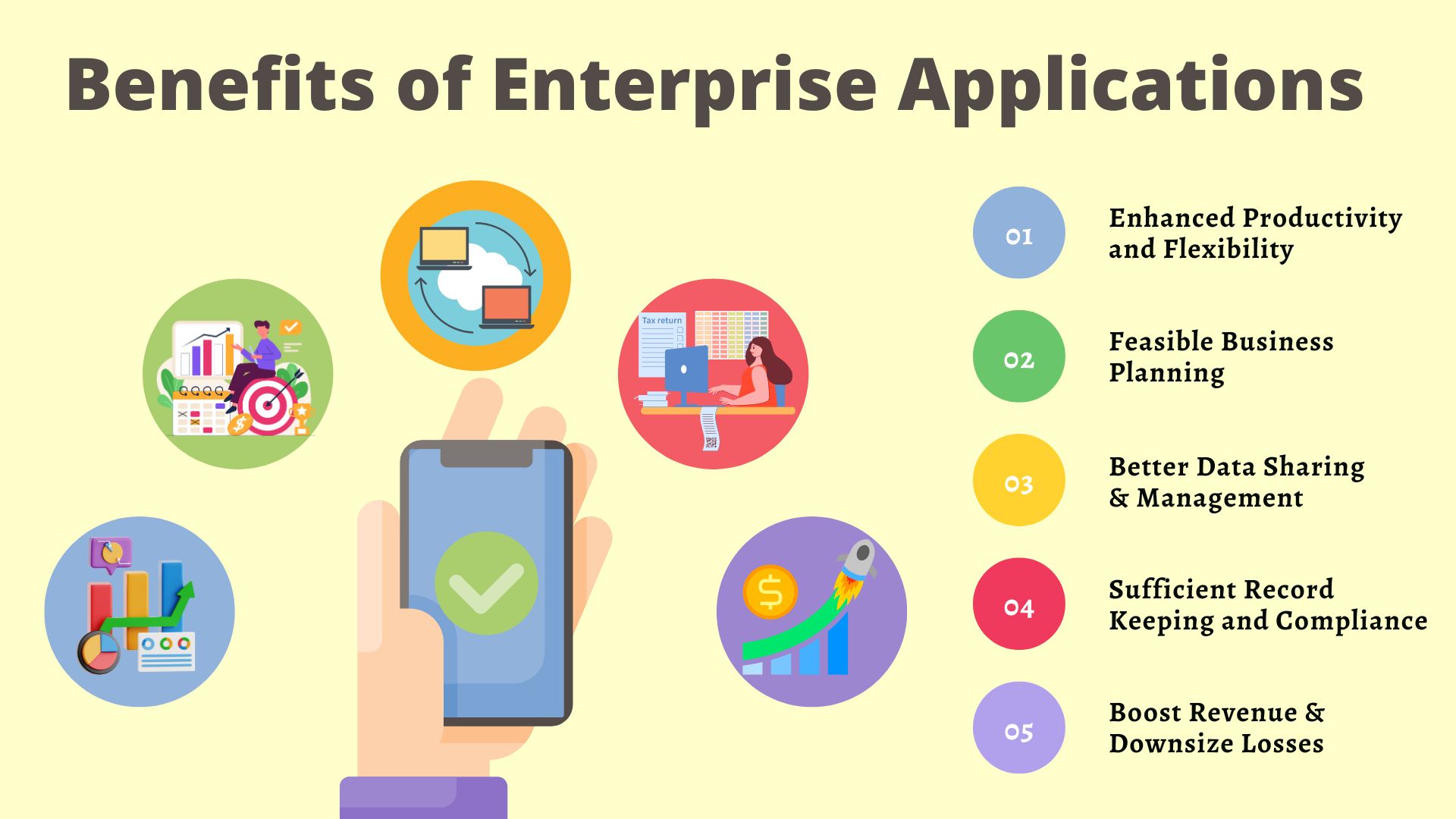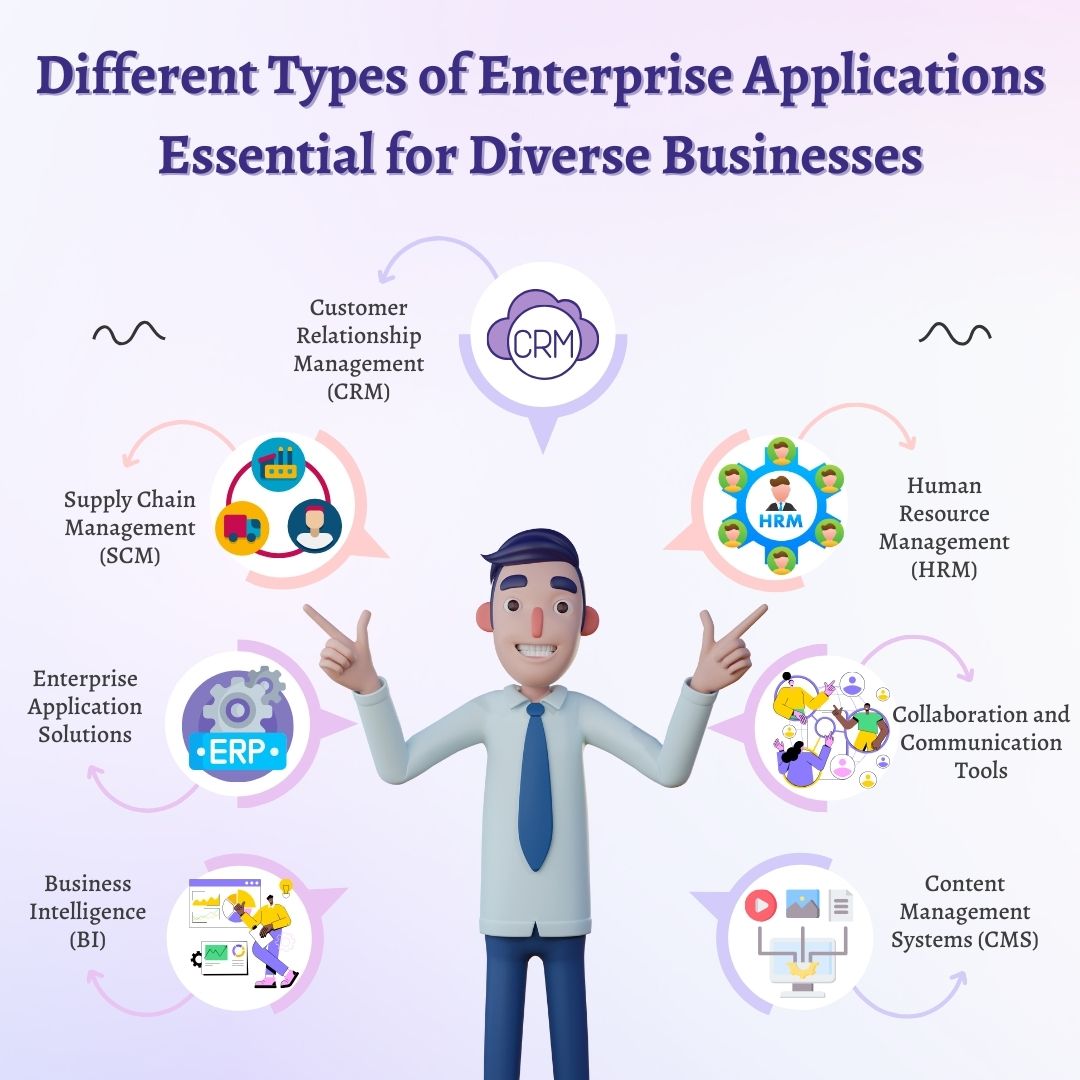Thriving in the inflated economy is a goal for industry expert businesses or new-in-the-market enterprises. However, everything is interconnected to the operational system of companies. Businesses are continually aiming to unwind, which is exemplary, but it does have an unfavorable influence on their operations. Individual organizations employ a combination of business strategies daily, and while some may be productive, considerable processes may not be.
Similar enterprise-level challenges were faced by one of the Big Five, Amazon, automotive giant Toyota, and even Starbucks with their operations. For instance, Toyota desired to extend its reach globally to propose high-quality services like enhanced operational management precision, a paperless system, a markdown in work hours, and an increase in widespread organizational efficiency. In order to pin down all the challenges and adopt a digitalized system, Toyota chose enterprise resource planning software.
From integrating business processes to enhancing data analysis and reporting, enterprise solutions alter the existing functioning. At the end of the day, Toyota, a multinational automotive manufacturer, profited globally from ERP software.
Keeping the visible growth in sight from the enterprise-specific solutions, it is high time for businesses to transform their existing softwares or create enterprise apps. If you are a mid-sized business or established enterprise that intends to contemporize its organization, picking enterprise application development services is the suitable alternative. Businesses can hire mobile app developers with in-depth knowledge of software development and years of industry experience. In order to establish the idea of enterprise apps in the modern industry, a thorough understanding with an ultimate guide can help businesses explore the possibility.
Must-Have Features of Enterprise Software Development
The right approach to building an enterprise lies in the core of necessary features. A solution with features ranging from simple to complex brings immense productivity and operational streamlined workflow.
1. Automation
Tedious task automation is the fundamental objective of an enterprise app. The app should be capable of automating redundant tasks and enhancing employee efficacy by carrying these tasks off their hands. With an enterprise mobile application, businesses and enterprises utilize the power of AI and ML to automate monotonous tasks seamlessly and increase workflow efficiency.
2. User Roles
While enterprise apps equip employees with instantaneous access to data, all information is not required to be available to all of the members of the organization. Consequently, businesses ought to incorporate a feature that authorizes the appointment of user roles for employee accounts. For instance, if your vendor has credentials to your app, they will be capable of encountering information about orders. However, with user roles, they won’t be capable of accessing inside data like enterprise interpretation estimation and finances.
3. Security
Enterprise application solutions gather, accumulate, and process an abundance of liable data and information. Therefore, the significance of data security must not be undervalued. The hazards increase since employees can operate enterprise mobile applications on their confidential smartphones. You can begin by utilizing two-factor or multi-factor authentication and data encryption to guarantee the security of the app.
4. Real-Time Analytics
The momentum of coming to conclusions can be a success or defeat for a business struggling in a fast-paced industry. This is one of the reasons why it is vital for enterprise software to offer decision-makers real-time analysis for more instantaneous and better decision-making. With a next-gen enterprise mobile app development partner, businesses and enterprises can ensure solutions with impeccable analytics and reporting management.
5. Data Sharing
Business procedures concern operating with abundant data, considering the industry is reliant on data-driven decision-making. A corporation should be able to communicate information between employees and suppliers or clients in the selected format. An enterprise-level app capable of data sharing allows businesses to share data without any security breaches accessibly.
6. Cloud Storage
The primary objective of custom enterprise application development is to supply corporations with a method to access information remotely. The nonchalant need for apps to store data in the cloud in context to present manageable access to user, organizational and operational information.
7. Third-Party Integrations
Enterprise software development services usually concern integration with third-party solutions and applications. The usefulness of an enterprise solution can assist you in speeding up the development cycle and preserving development expenditure. For instance, you can incorporate your app with Trello for push notifications or with PayPal and Stripe for payment integration. Thousands of app integrations are possible with enterprise solutions.
To bring modernization to the forefront, businesses must choose mobile app development services specific to the enterprises. With the above section, we understood the importance of features in an app that can aid businesses to grow over time and compete in the market.
Step-By-Step Enterprise Mobile App Development Process
Altering the existing market is the target of businesses and enterprises planning to transform their internal processes. Building an app with basic assistance can overturn the expected revolutionary outcomes. By keeping an enterprise app development firm at the forefront, businesses can streamline their planning, designing, development, and deployment processes. In order to get clarity on why development agencies are essential for the development phase, let us understand the step-by-step development process.

1. Gathering Requirements
The requirement gathering is the first phase, which concerns comprehending the distinguishing necessities and objectives of the organization. It includes executing consultations with stakeholders, examining existing procedures, and pinpointing fundamental functionalities needed in the enterprise application. The requirements-gathering phase establishes the basis for the succeeding stages of mobile enterprise application development.
2. Architecture
Once the needs are assembled, the development team forms the architecture of the enterprise application. With a reliable mobile application design company, businesses and enterprises include characterizing the structure of the system, database design, and integration matters with other systems. The architecture stage builds the groundwork for efficient design and development and guarantees scalability and flexibility.
3. UI/UX Design
Considering that the architecture phase offers the structure of an application or software, the UX/UI design phase builds a user-friendly and smooth layout for the same. When businesses hire UI UX designer, they bring in a professional with industry knowledge of interface necessities, information accessibility, and navigation flow. The UI/UX phase lays the foundation for seamless development and feature feasibility.
4. Development and Testing
In this step, the fundamental development of the company application takes place. The development team composes code, incorporates various third-party components, and assembles the application. It is elementary to heed the soundest methods, utilize relevant frameworks and libraries, and perform comprehensive testing to guarantee the error-free functionality of the application.
5. Deployment and Maintenance
Once the development and testing phases are concluded, the enterprise software applications and apps are deployed to the presentation setting. It concerns placing servers, database configuration, and assuring a seamless shift from the development surroundings to the app live phase. Keeping deployment as a second last phase, the application demands continuous maintenance, including constant fixing of bugs, implementation, and performance optimization, and continuous updates to adjust to altering corporation necessities with application maintenance services.
From planning to deployment, businesses must understand that every phase of development is equally essential for a progressive and scalable enterprise app.
Benefits of Enterprise Applications For Your Business
Focusing on enterprise growth with the assistance of an enterprise mobile app is directly proportional to streamlined operational activities. Businesses must thoroughly understand the essential advantages of choosing an enterprise-specific app.

1. Enhanced Productivity and Flexibility
Automation of standard and redundant enterprise tasks and procedures is the primary purpose of enterprise applications. Enterprise-centric solutions can automate practically everything from employee salary processing to mailing out marketing campaigns and handling customer relationships.
2. Feasible Business Planning
Enterprise app solutions equip enterprises with a meticulous understanding of business processes and functions. You can follow the implementation of your company and make data-driven decisions. Enterprise mobile application development with a business-centric pursuit yields in the extended run. You do not need to spend innumerable hours attempting to estimate and forecast product recovery rates.
3. Better Data Sharing & Management
Distinct departments of a corporation forge tons of data that can be advantageous for other employees. However, when it comes to data sharing and management, numerous establishments still depend on spreadsheets and Google Docs.
Enterprise software solutions can enhance the interoperability between various departments of the organization. You can build a solution that will gather and accumulate data from all procedures within the enterprise for more effortless governance, access, and processing.
4. Sufficient Record Keeping and Compliance
Data misplacement and data theft can destroy a company and lead to bankruptcy. AI-powered solutions can assist with the difficulties of data security and compliance. These systems are designed with built-in security protocols that diminish the chance of data loss or theft.
5. Boost Revenue & Downsize Losses
Most enterprise mobile application solutions offer an in-depth understanding of industry processes and functions. As a consequence, enterprises can reasonably govern their procedures, make forecasts, maximize remuneration, and lessen losses.
The world relies on the benefits of enterprise apps as they offer smooth business functioning automated processes to preserve time and manual labor and ensure enhanced productivity.
Different Types of Enterprise Applications Essential for Diverse Businesses
There are considerable types of enterprise applications that present businesses with the capabilities to address their daily tasks and facilitate their operating activities.

1. Customer Relationship Management (CRM)
CRM applications encourage businesses to operate customer relations, track sales movements, and enhance customer fulfillment. These applications generally offer features such as customer support management, connection management, lead tracking management, and sales analytics and forecasting. Businesses can hire a CRM And ERP development company to build an application that offers the features as per the requirements.
2. Supply Chain Management (SCM)
Supply chain management applications concentrate on optimizing the systematic flow of goods, services, and data across the supply chain. They assist enterprises in handling inventory, simplifying procurement, tracking shipments, and cooperating with suppliers and partners.
3. Enterprise Application Solutions
ERP applications integrate diverse business functions and departments, such as inventory management, human resources, finance, and many more. ERP applications propose a centralized platform to corporations for supervising and automating enterprise processes, enhancing efficiency and information accuracy.
4. Business Intelligence (BI)
Business Intelligence applications encourage organizations to compile, examine, and envision data to achieve insights and make knowledgeable business decisions. These applications usually offer business features such as reporting, data visualization, data integration, and predictive analytics.
5. Human Resource Management (HRM)
HRM applications encourage the administration of employee information and data, payroll, advantages administration, implementation evaluation, and staffing. They ensure businesses automate HR procedures, improve employee engagement, and guarantee adherence to labor laws and limitations.
6. Collaboration and Communication Tools
Collaboration tools such as document-sharing platforms, project management systems, and team communication tools enable seamless cooperation and communication within organizations. They encourage collaboration, enhance productivity, and improve information sharing for business expansion and growth.
7. Content Management Systems (CMS)
CMS applications assist businesses in composing and publishing digital content, such as websites, blogs, articles, press releases, and intranets. They offer tools for editing, content creation, version control, and publishing, facilitating efficient content administration and delivery.
How Much Does Custom Enterprise App Development Cost?
The estimated budget can deviate substantially on the basis of project scope, feature complexity, and detailed requirements. The estimated capital investment can be impacted by some of the below-mentioned aspects:
- Needed features and functionality
- Type of customizations made
- Number of user roles and hierarchical workflow
- Security needs and compliance measures
- The intricacy of integrations with existing systems
- Testing needs across performance, functionality, security, integrations, and user scenarios
- Quantity of data storage and analytics abilities
- Scalability ought to sustain extending usage over time
However, here are some general guidelines on the costs of an enterprise app:
| Enterprise Development Costs on the Basis of Features Complexity | ||
| App Size | Cost | Features |
| Small App | $20,000 – $75,000 |
|
| Mid-Size App | $100,000 – $300,000 |
|
| Large App | $300,000+ |
|
As visible in the table, advanced programming increases the estimated budget. However, systematic planning, strategy, and testing are fundamental.
Ongoing costs should also be considered for factors like the following.
- Hosting expenses and infrastructure.
- Regular maintenance.
- Customary reinforcement and troubleshooting.
- Ongoing enhancements and new features.
A systematic development approach concentrated on enterprise requirements rather than technology, along with agile processes and scalable architecture, can assist in optimizing investment and durations for enterprise application development. Keeping the above table in mind, the enterprise app cost will presumably reach six figures if businesses look forward to advanced apps.
Why Choose SparxIT as Your Enterprise Mobile App Development Company?
With our enterprise app developers, mid-sized businesses and established enterprises can push through the constant wave of unproductivity. SparxIT believes in bringing in the concept of automation and elevated efficiency in operational workflows with our enterprise software solutions and apps. As an ever-evolving enterprise mobile app development company, we bridge the gap between efficacy and business employees with our domain-specific apps.
We understand the user is scrutinizing for a tech-evolutionary solution comprised of scalable components, and we confirm to review the circumstances and then suppress the problem in the existing solutions or construct custom solutions from scratch. With meticulous market breakdowns, we assure businesses that the solutions that are equipped for them are technologically refined and aid them in contemporizing their vertical.
If you are looking for enterprise mobile application development companies for a scalable and robust solution that has distinguishable features, then express your vision to our specialists, and we will assist you in exploring the enterprise app development cost.
Frequently Asked Questions
Q1. Why should I choose SparxIT as my enterprise mobile app development company?
A- SparxIT offers businesses scalable solutions right on time. Client satisfaction is our priority, and we guarantee excellence in delivering to them.
Q2. What is the process of SparxIT to build an enterprise app?
A- When it comes to building an enterprise app for businesses of all sizes, we understand their requirements. Once the client is on board, we move ahead with planning, designing, development, testing, and deployment processes to ensure the development of enterprise-specific apps.
Q3. How much capital investment is required for enterprise application development?
A- In order to find out the capital investment, businesses must be aware of the required features. The estimated cost depends entirely on the project’s complexity, the features needed, and the experience of developers.
Q4. How long of duration does it take to build an app?
A- The duration of project completion depends on the project’s complexity. If an application is required with simple features, it takes 3-4 months while a complex application will take upto 8-9 months for the development.





